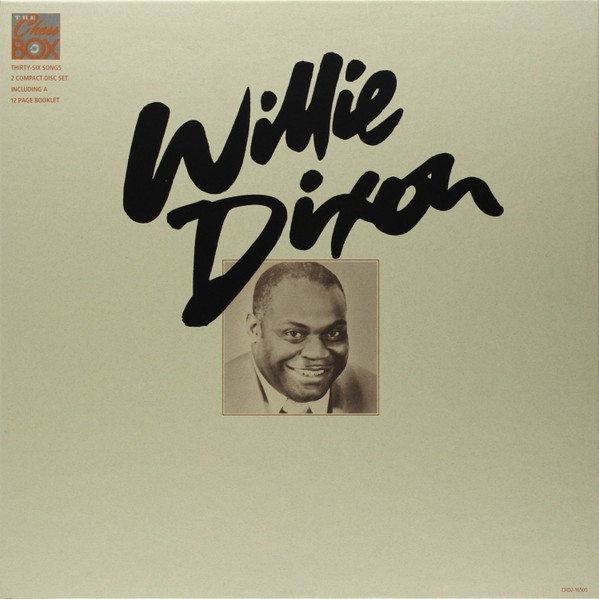|
A Brief History:
Fleetwood Mac started in 1967 as a British blues band. Over eight years, members came and went with Mick Fleetwood and John McVie being the only constants. By 1975, they’d settled on the lineup that over a dozen years, would bring them to their greatest commercial heights. The American folk-duo of Lindsey Buckingham and Stevie Nicks joined the band in 1974, giving the band a poppier, classic rock feel.
- Lindsey Buckingham (vocals, guitar, et al)
- Stevie Nicks (vocals, tambourine)
- Christine McVie (vocals, keyboards)
- John McVie (bass)
- Mick Fleetwood (drums, percussion)
These years include five studio albums each with their own DMDB page. All have brief snapshots on this page.
The Studio Albums:
Under each album snapshot, songs featured on the Greatest Hits are noted. Song titles are followed by the names of writers in parentheses, the song’s length in brackets, and then the date the song charted and its peaks on various charts. Click for codes to singles charts.
Fleetwood Mac (1975):
After ten studio albums, Fleetwood Mac leapt into the arena of commercial stardom with a self-titled release. On the strength of three top-20 hits in the U.S., the album which introduced Lindsey Buckingham to Stevie Nicks, hit #1 and became a multi-platinum seller. The band had previously never reached higher than #34 on the Billboard album chart.
- Over My Head (C. McVie) [4:11] (11/8/75, 20 US, 32 AC, 9 CN, airplay: 2 million)
- Rhiannon (Nicks) [4:11] (3/6/76, 11 US, 33 AC, 46 UK, 4 CN, 13 AU, airplay: 3 million)
- Say You Love Me (C. McVie) [4:11] (7/4/76, 11 US, 12 AC, 40 UK, 29 CN, 38 AU, airplay: 2 million)
Rumours (1977):
Expectations were high and so were the band members. They were also fighting so much as a band that the success they’d just found looked certain to derail. Instead, the broken relationships behind the scenes fueled their songs and the album became one of the most successful in history. Sporting four top-ten U.S. hits, it sold 40 million copies worldwide and spent 31 weeks atop the Billboard album chart in the U.S.
- Go Your Own Way (Buckingham) [3:43] (12/76, 10 US, 45 AC, 38 UK, 11 CN, 20 AU, airplay: 1 million)
- Dreams (Nicks) [4:14] (3/24/77, 1 US, 11 AC, 24 UK, 1 CN, 19 AU, sales: ½ million, airplay: 5 million)
- Don’t Stop (C. McVie) [3:13] (4/30/77, 3 US, 22 AC, 32 UK, 1 CN, 30 AU, airplay: 3.0 m)
- You Make Loving Fun (C. McVie) [3:31] (9/77, 9 US, 28 AC, 45 UK, 7 CN, 65 AU, airplay: 2 million))
Tusk (1979):
Fleetwood Mac got ambitious the next time out, releasing a double album. It didn’t match the success of the previous outing – which would have been damn-near impossible – but it still gave the band two more top-ten hits in the U.S.
- Tusk (Buckingham) [3:37] (10/6/79, 8 US, 6 UK, 5 CN, 3 AU)
- Sara (Nicks) [6:22] (12/15/79, 7 US, 13 AC, 37 UK, 12 CN, 11 AU, airplay: 2 million)
Mirage (1982):
Since their last album, Stevie Nicks and Lindsey Buckingham had each found solo success. Nicks had gone all the way to #1 on the U.S. album chart with Bella Donna, which had two top-ten hits, and Buckingam hit the top 10 with his song “Trouble.” Audiences were eager to hear the band as a whole again. Ironically, though, it was Christine McVie who had the highest-charting single from the album with “Hold Me.”
- Hold Me (C. McVie/Robbie Patton) [3:44] (6/19/82, 4 US, 3 AR, 7 AC, 94 UK, 9 CN, 12 AU, airplay: 2 million)
- Gypsy (Nicks) [4:24] (7/24/82, 12 US, 4 AR, 9 AC, 46 UK, 16 CN, 17 AU, airplay: 2 million)
Tango in the Night (1987):
After some more solo forays, which now included a solo album and top-10 hit from Christine McVie, the band came together again for what would be the last studio album with the classic lineup that brought the group its biggest taste of fame. Seven songs from Tango in the Night hit various charts with four of those reaching the top-20 on the Billboard Hot 100.
- Big Love (Buckingham) [3:37] (3/28/87, 5 US, 2 AR, 23 AC, 9 UK, 17 CN, 16 AU)
- Seven Wonders (Stewart/ Nicks) [3:38] (4/25/87, 19 US, 2 AR, 13 AC, 56 UK, 47 CN, 23 AU)
- Little Lies (McVie/ Quintela) [3:40] (8/2/87, 4 US, 14 AR, 1 AC, 5 UK, 3 CN, 16 AU, airplay: 2 million)
- Everywhere (C. McVie) [3:48] (11/28/87, 14 US, 22 AR, 1 AC, 4 UK, 45 AU, airplay: 1 million)
Greatest Hits (1988):
“Greatest Hits is a fine overview of Fleetwood Mac’s hit-making years, containing the bulk of the group’s Top 40 hits of the late ‘70s and ‘80s,” AMG which included such fare as top-10 hits Go Your Own Way, Tusk, Sara, Hold Me, Big Love, and Little Lies and their only #1 hit, Dreams. Minor hits like ‘Think About Me’ [and] ‘Love in Store’… are missing, making room for the new songs As Long as You Follow…and No Questions Asked, but overall, Greatest Hits is an excellent choice for casual listeners.” AMG
- As Long As You Follow (11/26/88, 43 US, 15 AR, 1 AC, 66 UK, 35 AU)
- No Questions Asked (12/4/88, 37 AR)
Notes: “Seven Wonders” was added to the 2006 reissue.
|











